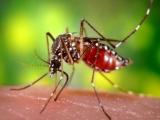In a flurry of Zika developments today, Florida said local transmission has ended in the final affected area of Miami, and Texas reported four more locally acquired cases.
Florida lifts final zone
At a media briefing in Miami Beach today, Florida Gov. Rick Scott announced that the final Zika transmission zone has been lifted, a 1.5-square-mile area of South Miami Beach, the Miami Herald reported.
Officials said today that the South Miami Beach area has now met the Centers for Disease Control and Prevention (CDC) criteria for when transmission ends: 45 days without a new case inside the designated zone. Florida announced its first local case on Jul 29, and at one time had four active transmission areas. So far the state has reported 249 local cases, with 15 more people who may have been exposed locally or abroad.
The CDC announced that it adjusted its travel warning in response to the lifting of the final active transmission areas. However, it kept strong cautions in place for pregnant women and their partners for all of Miami-Dade County, which is still designated as a cautionary area and shaded yellow on the CDC's map.
Tom Frieden, MD, MPH, CDC director, said in the statement, "Florida’s rapid response and comprehensive mosquito control program has allowed them to interrupt Zika transmission, but we must stay vigilant and also take what we have learned and be prepared for next season." He also urged pregnant women who live in or have visited the area to be evaluated for Zika virus during their prenatal visits.
The state has aggressively battled Aedes mosquitoes, which transmit the virus, with aerial spraying and traditional ground spraying.
Over the last several weeks, the Florida Department of Health (Florida Health) has reported a small but steady stream of local cases, many of them Miami-Dade County residents for whom the exposure location was still undetermined. Health officials also continue to report a steady flow of infected travelers, posing an ongoing source of Zika virus to local mosquito populations.
While state officials, along with business and tourism leaders, celebrated the end of active local transmission, the state's Surgeon General Celeste Philip, MD, at the media briefing urged residents and visitors to maintain vigilance by preventing mosquito bites and sexual spread of the disease. Though the weather has cooled, she said officials expect to see more sporadic cases, adding that the return of warmer weather—combined with frequent travel between South Florida and other locations where Zika spread continues—could renew active transmission in the region.
In a statement today, Miami-Dade Mayor Carlos Gimenez said he traveled to Atlanta this week to discuss the plan for next year's Zika activities, and he praised the teamwork between local officials and urged residents and travelers to keep their guard up against the disease.
"Mosquito control is a year-round responsibility, and we continue to rely on everyone who lives in or travels to Miami-Dade to help us stop the spread of Zika by draining any standing water, wearing mosquito repellant, and covering up with long sleeves and pants when going outdoors," Gimenez said.
Texas reports 4 more cases in Brownsville
Meanwhile, the Texas Department of State Health Services (TDSHS) and county health officials announced four more suspected locally acquired cases in Cameron County, all affecting people who live in Brownsville very close to the first case-patient from the state. Investigations are ongoing, but the TDSHS said the patients were likely exposed to Zika in the immediate area.
The individuals reported Zika-like symptoms between Nov 29 and Dec 1 and were probably exposed to the virus before authorities ramped up mosquito control efforts in response to the detection of the first case. None of the newly reported patients are pregnant women, and while testing continues in an eight-block area around the people's homes, officials don't see any evidence of Zika transmission in the wider area.
John Hellerstedt, MD, TDSHS commissioner, said in the statement that mosquito control steps and the onset of cooler weather have decreased mosquito activity in Cameron County and have decreased the chances of more widespread Zika transmission for the time being. "However, winters are mild in southern Texas, and mosquito populations can rebound even during short periods of warmer weather. Whenever you see mosquito activity, protect yourself and your family from bites."
US territories get Zika funding
The US Department of Health and Human Services (HHS) yesterday announced nearly $40 million in funding to US territories that are experiencing local Zika spread: Puerto Rico, American Samoa, and the US Virgin Islands. In a statement it said $39 million targets 23 health centers in the territories, while $1 million is for two primary care associations.
According to HHS, the territories will use the funding over a 3-year period to expand health services to meet current and future Zika-related healthcare needs. The money for the primary care associations is meant to help provide training and technical assistance to the health centers.
See also:
Dec 9 Miami Herald story
Dec 9 Gimenez statement
Dec 9 TDSHS statement
Dec 9 CDC statement
Dec 8 HHS statement





















